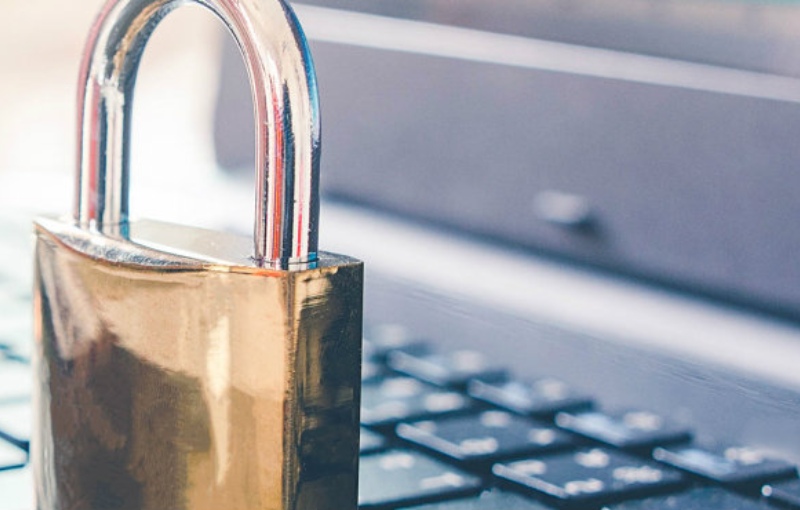Protecting Your Identity Online
Scams
Remember, you will never be required to send gift cards in return for a good or service.
- Do not add random strangers on social media. Scammers come in many different forms. Only accept friend requests from those that you know.
- Do not respond to suspicious emails or phone messages where your personal info is requested. Be aware of the suspicious scammer.
- Do not make online purchases or link recurring payments to an unfamiliar website or merchant. Think before you link.
- Do not agree to send a stranger monetary funds of any kind. Even if they claim to be a family member. Contact your family member directly. Create a special phrase or word to use when communicating.
- Do not dispose of paper statements or card information by just tossing it in the trash. If you receive paper statements or card information, be sure to shred them before disposing.
Protecting Your Identity Online
Your identity is one of the most valuable things you own. It's important to keep your identity from being stolen by someone who can potentially harm your good name and financial well-being. Identity theft occurs when someone uses your name, address, Social Security Number, credit card or financial account numbers, passwords, and other personal information without your knowledge to commit fraud or other crimes.
While the words may sound like a foreign language — Phishing, Pharming, Vishing, Spyware, Dumpster Diving — they are actually techniques used by thieves to put your identity and finances at risk. And their attacks grow more frequent and sophisticated every year. Identity theft is the fastest-growing crime in the United States. According to US Department of Justice statistics, it's now passing drug trafficking as the number one crime in America.
I'm a Victim of Identity Theft — What Should I Do?
If your identity has been stolen, you need to take immediate action to limit the damage and protect your good name.
- Download our free Identity Theft Emergency Repair Kit (PDF). It provides step-by-step instructions and the necessary forms to help restore your identity. You will need Adobe Acrobat Reader to open this PDF document.
- Contact Belgrade State Bank and other related vendors immediately. Close any accounts that may have been tampered with or opened fraudulently.
- Place a fraud alert on your credit report with one of the three major credit bureaus. Also, request to review your credit report for suspicious activity. A copy of your credit report is available free each year from www.annualcreditreport.com.
- Equifax®: 1-888-766-0008
- Experian®: 1-888-397-3742
- TransUnion®: 1-800-680-7289
- File a complaint with the Federal Trade Commission at www.ftc.gov.
- File a report with the local police.
Internet Security and Safety
At Belgrade State Bank, your safety and security are one of our top priorities. In a new and digital age, it is easier than ever to connect with your bank online. Below we provide some ways to stay safe while on the internet and interacting with Belgrade State Bank online.
- We NEVER send emails requesting personal information. We will never ask you to "verify" information. We will never ask you to click on a special site link to do so. While emails of this nature may look like they are from us, and even use our logo, they are most likely a "phishing" scam. Do not answer them. If you receive an email purporting to be from us, do not hesitate to call us to confirm it.
- We will never contact a customer on an unsolicited basis and request the customer's provision of electronic banking credentials.
- Commercial online banking customers should perform a related risk assessment and controls evaluation periodically.
- When emailing employees of Belgrade State Bank, do not email any confidential information such as account or loan numbers.
If you notice suspicious account activity or experience customer information security-related events, please contact any of the following:
- Bookkeeping Department: 573-431-3999
- Compliance Officer: 573-438-5200
- Your local branch manager
Electronic Funds Transfers
Belgrade State Bank follows the federal regulations under Regulation E for electronic fund transfers. The primary objective of Regulation E is the protection of individual consumers engaging in electronic fund transfers and remittance transfers. As mentioned, Regulation E covers consumer accounts. Consumer is defined in the regulation as a "natural person". The regulation does not apply to electronic transfers to and from business or commercial accounts. Account is defined as a "demand deposit (checking), savings or other consumer account held directly or indirectly by a financial institution and established primarily for a person, family, or household purposes". This term does not include an account held by a bank under a bona fide trust agreement. Regulation E applies to any electronic fund transfer that authorizes a bank to debit or credit a consumer's account. An electronic fund transfer is any transfer of funds that is initiated through an electronic terminal, telephone, computer, or magnetic tape to order, instruct, or authorize a bank to debit or credit a consumer's account.
There are protections available, but only for consumer accounts under Regulation E. If you notify the bank within 2 business days after you learn of the loss or theft of your ATM/Debit card and/or your code, you can lose no more than $50.00 if someone used your card and/or code without your permission. The protections provided under Regulation E also allow the consumer to recover Internet banking losses on their account (checking, savings or other consumer asset account) provided the losses are reported to the bank within the guidelines described.
If you do NOT tell the bank within 2 business days after you learn of the loss or theft of your card and/or code, we can prove we could have stopped someone from using your card and/or code without your permission if you had told us, you could lose as much as $500.00.
Also, if your statement shows transfers that you did not make, including those made by card, code or other means, tell the bank at once. If you do not tell us within 60 days after the statement was mailed to you, you may not get back any money you lost after the 60 days if we can prove that we could have stopped someone from taking the money if you had told us in time.
If a good reason (such as a long trip or a hospital stay) keeps you from telling the bank, we will extend the period.
Unless you have been grossly negligent or have engaged in fraud, you will not be liable for any unauthorized transactions using your lost or stolen Visa Debit Card. This additional limit on liability does not apply to ATM transactions or to transactions using your Personal Identification Number which are not processed by Visa.
If you believe your card and/or code has been lost or stolen, call the bank at 573-438-5200 or write to: Belgrade State Bank, Bookkeeping Department, 414 N. State St. Desloge, MO 63601. You should also call the number or write to the above address if you believe a transfer has been made using the information from your check without your permission.
For additional information regarding online safety and security, please access these resources:





